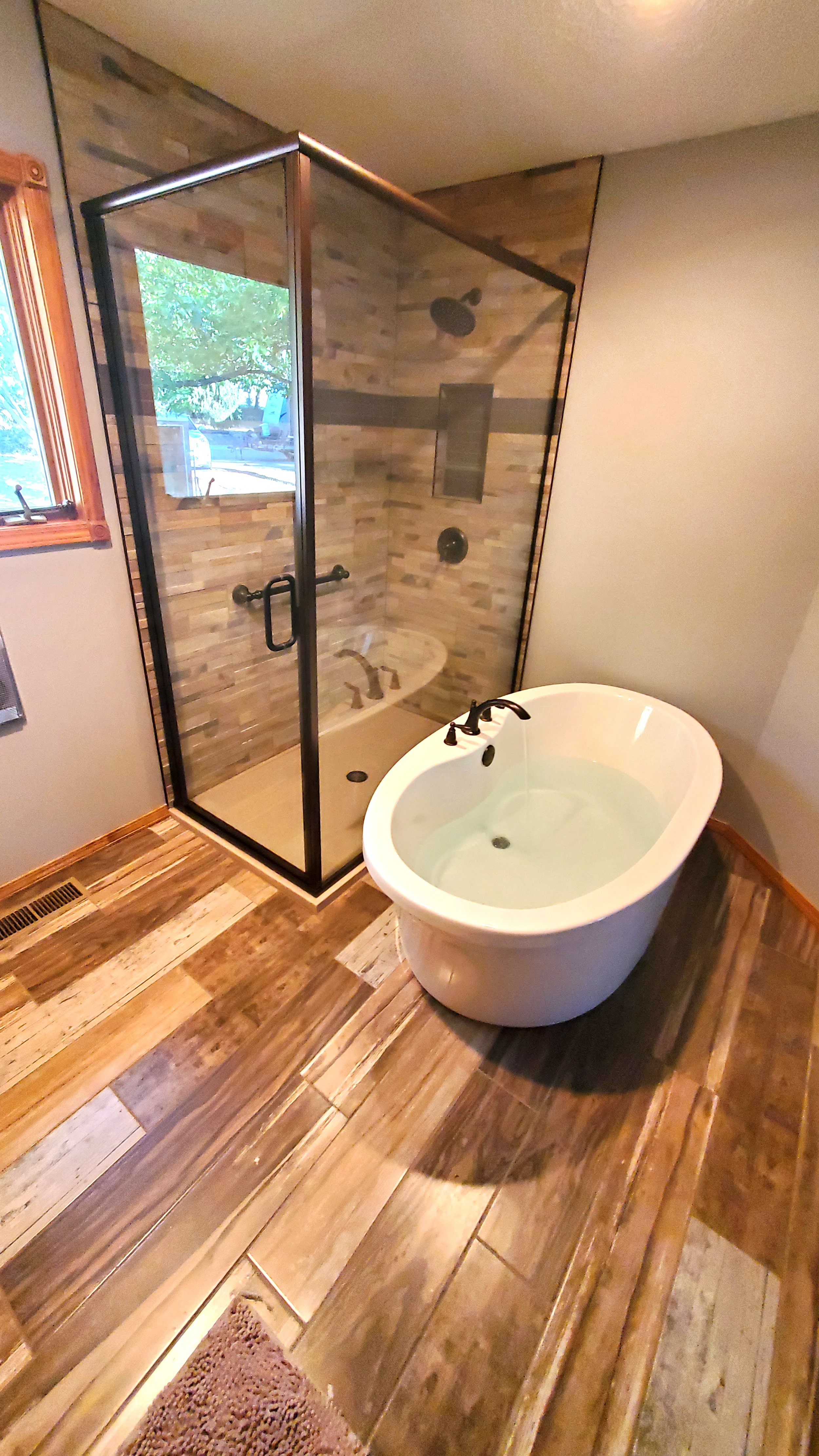DIY vs. Hiring a Professional for Home Projects
Deciding whether to tackle a home project yourself (DIY) or hire a professional contractor can be a tough decision. It often depends on the complexity of the task, your skill level, time availability, and budget. Here's a breakdown of the pros and cons of both approaches, plus a few scenarios to help you determine which route might be best for your project.
DIY (Do-It-Yourself)
Pros of DIY:
Cost Savings: The biggest advantage of DIY is the potential to save money. You won't be paying for labor costs, which can be a significant portion of any home improvement project.
Control and Flexibility: You’re in charge of every detail. You get to choose the materials, the timeline, and the overall design. You can also adjust the project on the fly if things change.
Personal Satisfaction: Completing a project yourself can be incredibly rewarding. There’s a sense of pride in knowing you’ve done it yourself, and you can often enjoy the results more knowing you put the work in.
Learning Experience: DIY is a great way to develop new skills. Whether it’s installing a backsplash, building a shelf, or painting a room, you’ll gain valuable knowledge that could help you with future projects.
Cons of DIY:
Time-Consuming: Home improvement projects can take a lot of time—especially if you’re new to it. It may take longer than you expect to learn the necessary skills, gather materials, and actually do the work.
Lack of Expertise: Many home projects require specialized skills (e.g., electrical work, plumbing, or structural changes). If you’re not trained or experienced, you risk making mistakes that could lead to costly repairs or even damage to your home.
Unforeseen Problems: Even with good planning, DIY projects often run into unexpected issues. You might not have the tools, materials, or knowledge to solve problems as they arise, and this could lead to delays or mistakes.
Limited Tools and Equipment: Depending on the project, you may need specialized tools. Renting or buying these tools could add to the overall cost of the project. Plus, using the wrong tools can lead to subpar results.
Code and Permit Issues: Some projects—like electrical work, plumbing, or additions—require permits or need to meet local building codes. Handling this yourself can be tricky, and any mistakes could result in fines, rework, or difficulty selling the home later.
Hiring a Professional Contractor
Pros of Hiring a Professional:
Expertise and Experience: A professional brings years (or even decades) of experience to the table. They can handle the technical aspects of the project, ensuring the job is done correctly and safely.
Time Efficiency: Contractors work quickly and have the proper tools and manpower to get the job done in a fraction of the time it would take you. What might take you weeks could be completed in days.
High-Quality Results: Professionals have a trained eye for detail and the skills to achieve the best results. You’re more likely to get a polished, high-quality finished product when you hire someone who knows what they’re doing.
Permits and Codes: Contractors are familiar with local building codes, zoning laws, and permit requirements. They handle the paperwork and inspections, ensuring everything is up to code.
Liability and Insurance: If something goes wrong, professional contractors are insured. If there's damage to your property or an injury occurs, the contractor’s insurance should cover the cost, which gives you peace of mind.
Warranty and Guarantees: Many contractors offer warranties or guarantees for their work, ensuring that if something goes wrong after the project is finished, they’ll fix it at no extra cost to you.
Cons of Hiring a Professional:
Cost: Hiring a professional can be expensive, especially when you factor in labor costs, materials, and any project-specific fees (e.g., permits). It may stretch your budget significantly.
Less Control: While the contractor will follow your vision, you’ll be giving up a degree of control over the details. You may not have the flexibility to adjust things on the fly the way you would if you were doing it yourself.
Scheduling: Depending on the contractor's availability, you might have to wait for them to fit your project into their schedule. Busy contractors can be booked up for weeks or even months in advance.
Finding the Right Professional: Not all contractors are created equal. Finding someone reliable, skilled, and trustworthy can be a challenge. If you hire the wrong person, you could end up with subpar work, delays, or even fraud.
When to DIY:
Small, Low-Risk Projects: DIY is perfect for small projects that don’t require professional skills or tools. Examples include:
Painting a room or furniture
Installing a backsplash
Putting up new light fixtures or curtains
Building simple furniture (like bookshelves or storage units)
Landscaping and gardening tasks
Tiling a bathroom floor or shower (if you’re comfortable with it)
Budget-Conscious Projects: If you’re on a tight budget, DIY might be your best option. However, be realistic about your abilities. Sometimes spending a little extra on a professional will save you money in the long run (especially if you make costly mistakes).
Learning New Skills: If you’re interested in learning how to do things yourself and are willing to put in the time, DIY is a great way to acquire new skills and gain experience.
When to Hire a Professional:
Complex or Specialized Tasks: Projects that require specialized skills or tools are best left to professionals. This includes:
Electrical work (e.g., rewiring, installing new circuits)
Plumbing (e.g., pipe installations or repairs)
Structural changes (e.g., knocking down walls, adding rooms)
Roofing or large-scale exterior work
HVAC installation or repairs
Major renovations (like kitchens or bathrooms)
Time Constraints: If you’re under time pressure and can’t afford the time it takes to DIY, a professional can get the job done faster and more efficiently.
Safety Concerns: Projects that involve safety risks, such as working with heavy machinery, electrical systems, or anything that could result in injury (e.g., roofing or large tree removals), should be handled by trained professionals.
Legal or Code Requirements: If your project requires permits or has specific building codes that must be followed (such as home additions, electrical, or plumbing work), hiring a licensed contractor is necessary to ensure compliance with local laws.
Long-Term Value: If you’re planning to sell your home in the near future and want to ensure that the work is done to a professional standard (and meets building codes), hiring a contractor is a good choice. This can prevent issues when you go to sell the property.
Making the Right Choice:
To determine whether you should DIY or hire a professional, consider the following:
Your Skill Level: Do you have the tools and experience for the project? If not, are you willing to learn?
Your Timeline: How much time can you dedicate to the project? If it’s something that can be done over weekends, DIY might work. If you’re pressed for time, a pro will be quicker.
The Project’s Complexity: Is it a simple task, or does it require specialized knowledge (e.g., electrical, plumbing, or structural changes)?
The Budget: How much are you willing or able to spend? Can you afford a pro, or is the savings of DIY more important?
No matter the scope of your project, Restoration Solutions LLC is here to help you make these important decisions and to ensure that your experience with a professional contractor here in Springfield and Ozark Missouri exceeds your expectations! Call us today to get started!






